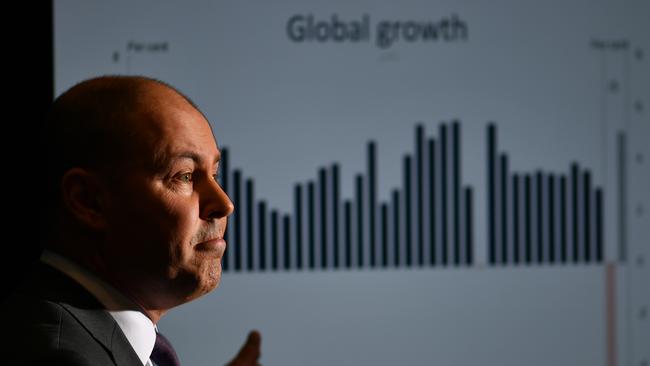How JobKeeper and JobSeeker are helping our economy
Top expects have said COVID-19 debts are not a bad thing as the government battles to save jobs. This is why we have to have these coronavirus supplements.

Saver HQ
Don't miss out on the headlines from Saver HQ. Followed categories will be added to My News.
There’s been plenty of talk in recent days about Australia’s growing mountain of debt.
Our Federal Government revealed it was $86 billion in the red for the 2019-20 financial year – after being on track for a surplus before the world went haywire amid the coronavirus – and it is forecasting an even bigger deficit of $185 billion for this financial year.
These numbers are hard to fathom: they mean our government is spending a quarter of a trillion bucks more than it brings in through taxes in just two years.
A big chunk of that debt flows from the JobKeeper wage subsidy program and the expanded JobSeeker payments for unemployed Aussies.
And while they cannot go on forever, these two programs are doing wonderfully well in propping up our economy and preventing even more job loss pain.
The spending they have underpinned helps explain the 8.2 per cent jump in June retail spending reported last week, right in the middle of a pandemic.
CommSec chief economist Craig James has described this as “a very interesting recession” and said our economy was doing better than most.

And while Australia’s COVID-19 cases have surged since June, we’ve also seen PM Scott Morrison and Treasurer Josh Frydenberg extend JobKeeper until March next year and JobSeeker’s coronavirus supplement until at least December.
Some have criticised the government for letting JobKeeper’s $1500 fortnightly payments deliver part-time workers billions of dollars more than they would have earned in wages since March.
However, that money, plus the extra payouts to unemployed people and pensioners, is being pumped back into shops and other businesses and shielding our economy from a worse slump.
Lower-income households are more likely to spend extra dollars they get, while higher-income households often save these windfalls because they already have cash to spare.
And wealthier households that typically spend thousands of bucks each year on overseas travel are being tempted to spend more at home because of our locked international borders.
Our economy is simply a measure of people producing, buying and selling stuff. It’s currently shrinking – our first recession in three decades, but we’re not Robinson Crusoe there.
And while national debt is growing, we entered COVID-19 in a much better place than most of the rest of the world. And record low interest rates at home and abroad keep a lid on interest costs.
AMP Capital chief economist Shane Oliver says the bigger debt is affordable. “Australia’s starting point for net public debt was low at 23 per cent of GDP compared with other advanced countries averaging 83 per cent,” Dr Oliver said last week.
Reserve Bank governor Philip Lowe also believes our public debt is manageable, and said it was likely to remain much lower than other countries.
Dr Lowe said Aussies had become used to low budget deficits and low debt levels, so now was quote a change – but an affordable change. “And it’s the right thing to do in the national interest,” he said.
Originally published as How JobKeeper and JobSeeker are helping our economy
